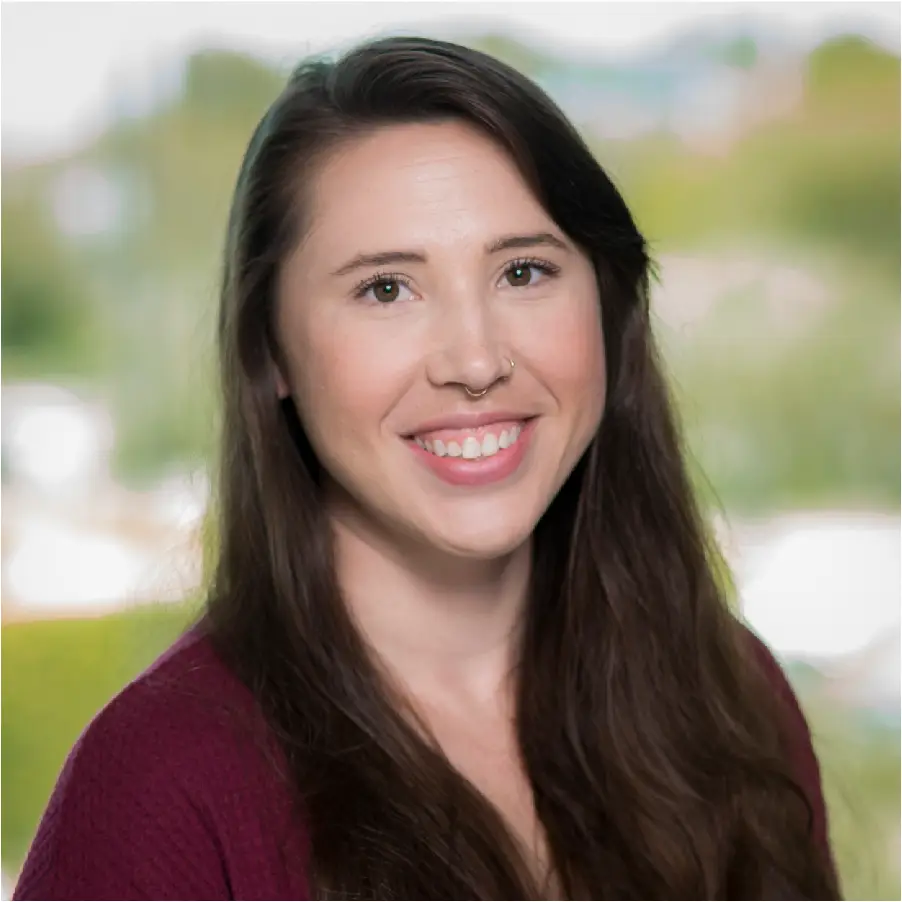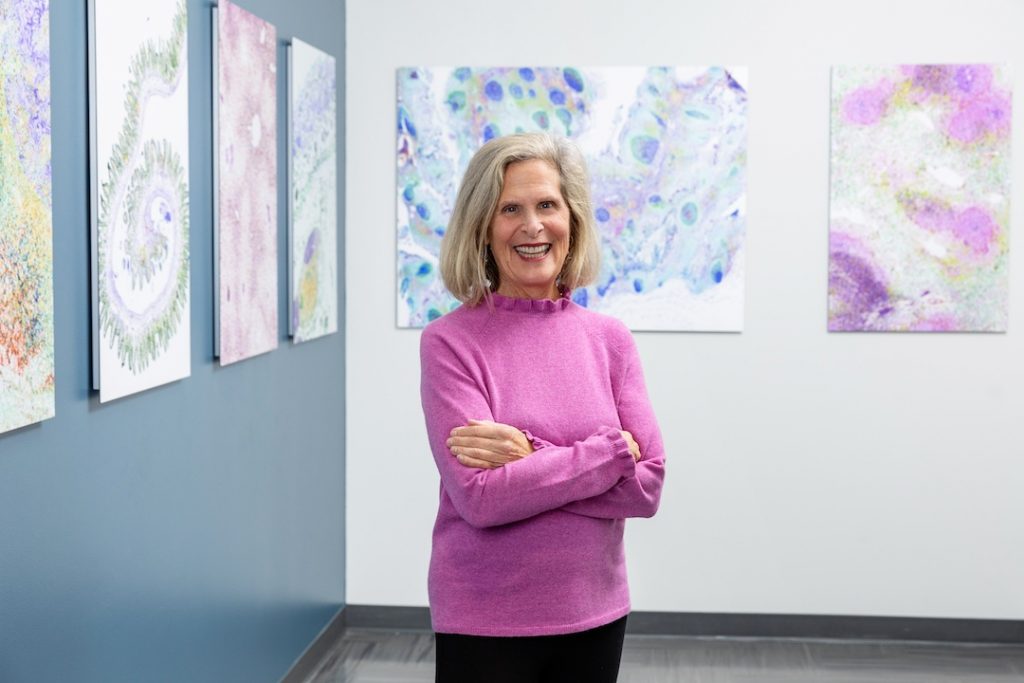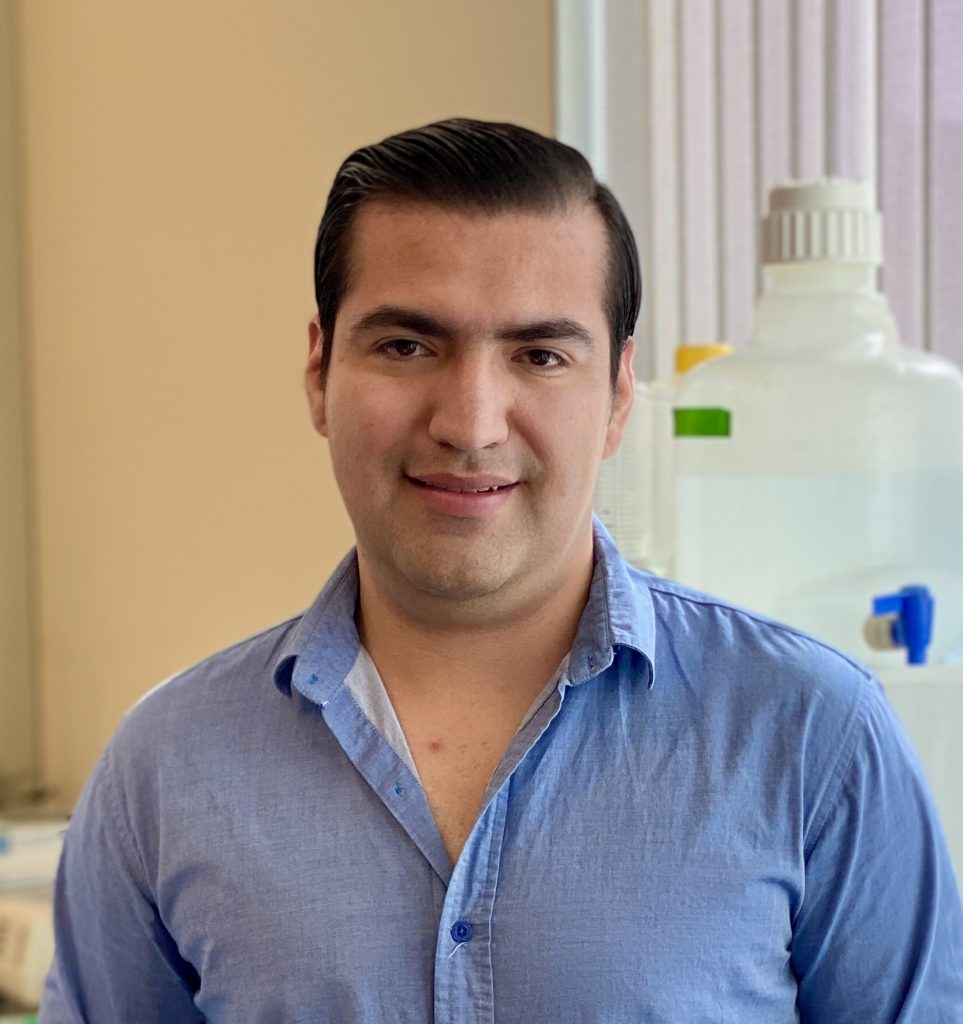Allison Bien did not have a typical college freshman year. For one thing, she had to attend all her UC Berkeley classes remotely.
Also, she worked for Nobel Laureate Jennifer Doudna, Ph.D.
Doudna is a giant in the biological sciences. Her development of the revolutionary CRISPR genome editing system earned her the 2020 Nobel Prize in Chemistry alongside Emmanuelle Charpentier, Ph.D.
Bien earned this rare opportunity after a three-year high school internship at La Jolla Institute for Immunology (LJI), in the lab of Professor Anjana Rao, Ph.D.
“I always wanted to go into medicine, but there aren’t a lot of ways to enter the field as a 15 year old,” says Bien. “Working in a lab seemed like a good way to get a head start.”
As a sophomore at Torrey Pines High School, a teacher encouraged Bien to reach out to UC San Diego biology faculty to see if she could intern in their laboratories. LJI Professor and Institute President Mitchell Kronenberg, Ph.D., ended up seeing her resume and sharing it with Rao.
Bien’s first impression of lab work? “I was really intimidated, not because anyone in the lab was intimidating, but I was just overwhelmed as a teenager working in this advanced lab,” she says.
That feeling didn’t last too long. “Everyone in the lab was surprisingly supportive and patient,” she says. “It was really exciting.”
[Read more about Bien’s mentorship experience at LJI]
The Rao Lab is focused on a fascinating corner of immunology: the inner lives of immune cells. Rao’s characterization of TET enzymes has shown how key immune cells mature and fight disease. Her research on T cell “exhaustion” may guide the development of better cancer therapies.
Bien learned the basic techniques for lab work, like how to use a pipette, and then she got to assist with experiments. At the same time, Bien joined a school club called iGEM, where she dove into synthetic biology projects.
“Because I was also in the club, I got to do a small research project on my own in the lab,” says Bien.
For her independent project, Bien set her sights on atherosclerosis, a source of cardiovascular disease. Her iGEM team aimed to target TMA, a molecule known to upregulate cholesterol build up in the body. They found that they could degrade TMA and subdue its toxic by-product, formaldehyde, in E. coli. Bien says the process taught her a lot about the incremental nature of research.
“A lot of projects can have a really broad scope, and I think it’s really interesting to see how individual experiments contribute to the whole,” Bien says. “It makes research all that more exciting.”
When she started classes at UC Berkeley, Bien also began emailing professors to see if they needed help in the lab. She had seen a documentary about Doudna’s CRISPR-Cas9 work during her freshman year in high school and read Doudna and Charpentier’s 2012 Science paper on the genome editing technique. “It was mind blowing,” Bien says.
Figuring there was nothing to lose, Bien applied to work in the Doudna Lab. Doudna responded, Bien could join the lab.
Today, Bien is working with a graduate student mentor to read and analyze research in the field. She’s also honing her writing skills to prepare to apply for undergraduate research grants. It’s not easy to work in a lab remotely, so Bien is looking forward to moving up to Berkeley this summer and doing hands-on science with her mentor.
She’s also eyeing M.D., Ph.D. programs.
“Doing research in the Rao Lab made me realize I didn’t want to just be a doctor, I want to do research at the same time,” she says. “I hadn’t known that was possible.”





